“The Crooner and the Cowboy” show, featuring Leon Bridges and Charley Crockett, lit up the stage at Saratoga Performing Arts Center on Saturday Aug. 30. The show could just as accurately have been billed “The Chameleon and the Cowboy.”
The “Cowboy” role was filled by the drawling, “say-sing,” gravelly style of Texan Charley Crockett, whose repertoire contained hard-luck, drifter-on-the road, barroom and gambling lyrics on the vocal side as well as some lively honky-tonk keyboard, pedal steel and guitar instrumentals which got Crockett dancing with his guitar and the crowd having a good ol’ time.
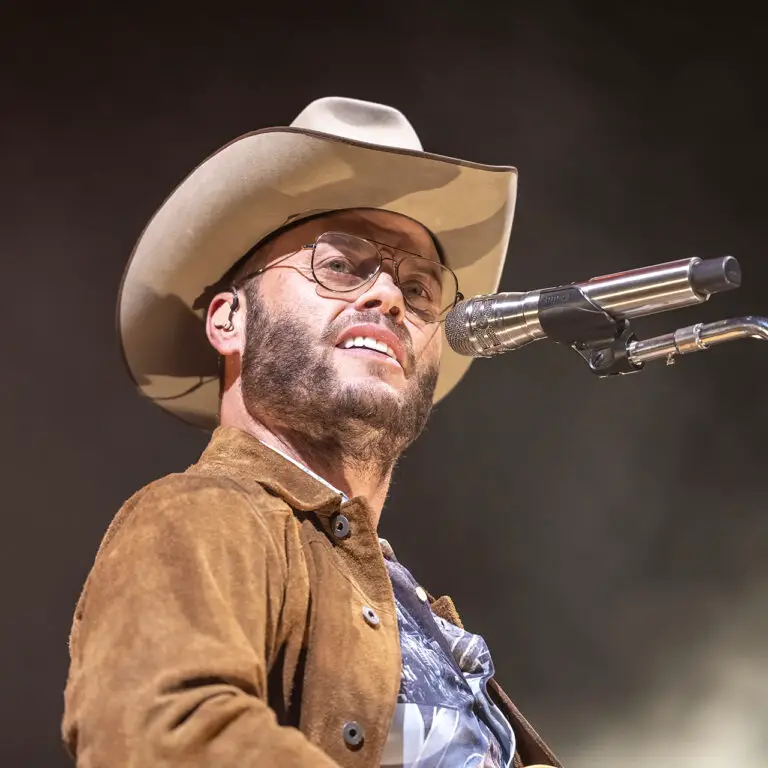
Crockett, who appeared at SPAC last year with Willie Nelson at the Farm Aid concert, fit the Cowboy typecast to a T, complete with white western hat, big belt buckle and blue jeans, even if at one point he defended himself as a true “Texas boy” in response to public criticism that his style isn’t pure country.
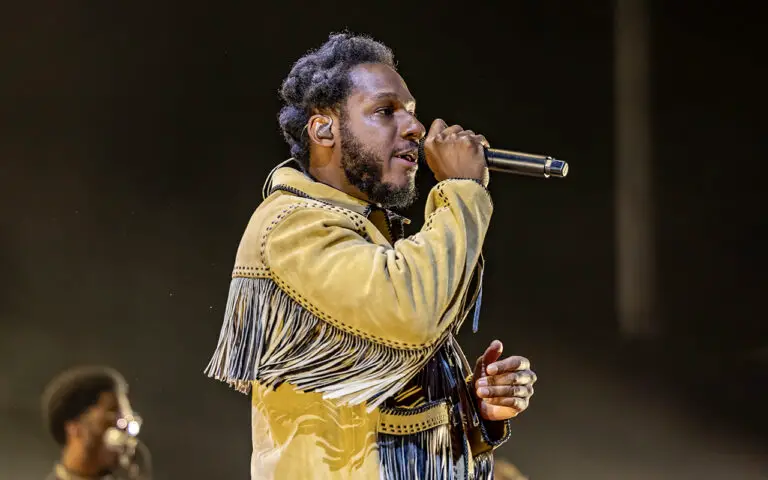
It may not be, but in this reviewer’s opinion, it comes a whole lot closer to fitting in a genre pigeonhole than the shifting sounds of the “Crooner,” Leon Bridges, also of Texas.
Bridges, who came out a little after 9 pm in a fringed jacket and black jeans, can roughly be typecast in Rhythm & Blues, I guess, but I frankly wouldn’t know where to try to trap him on a continuum that ran from lively — and literally — “do-op” numbers to soul, jazz, blues, maybe a little Motown, a powerful gospel-flavored number and poppier, easy-listening R&B with a romance bent. The sound was continually morphing, so “crooning” was surely not the Bing Crosby and Frank Sinatra variety of old nor even that of Tony Bennett, more familiar to younger audiences.
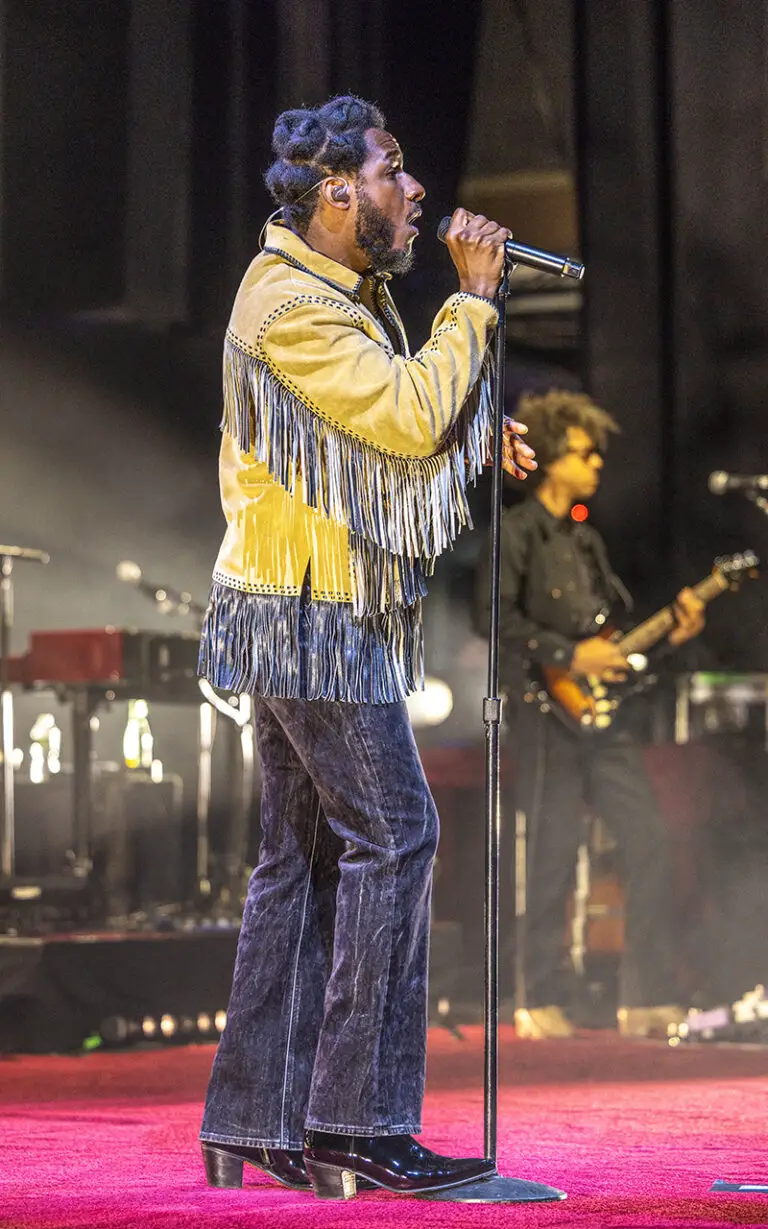
Speaking of old and young, the audience seemed on the young side of the spectrum, and I’m kind of old, so I hope the young whippersnappers out there aren’t clueless about the references I’ll be drawing as I move on here.
Anyway, if you’re familiar with the word association game where one person says “blue” and another says “sky” or “red” or whatever comes to mind, for me, that’s what listening to Leon Bridges’ lineup was like. He and his multi-talented band and back-up vocal team which included a sole young lady, Emily Elbert, for background vocals, guitar and bongos, would perform a song and I’d say to myself, “Hey, that sounds like [blank].”
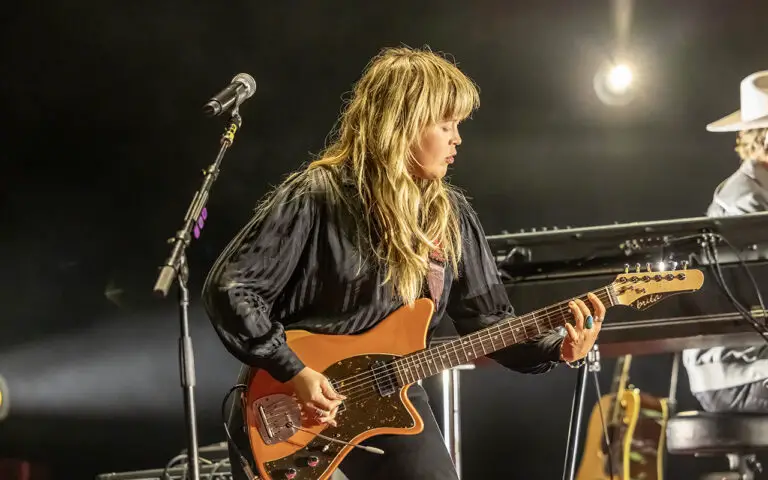
In Bridges & Company’s poppy first number, “There She Goes,” I thought I heard touches of Motown, then there were the less-subtle “do-ops” of “Better Man” with some jazzy sax and organ interludes. Third in, “Flowers” rose to a jitterbug tempo with “ooh bop bop bop” background vocals in which the audience shared (including the spirited young folks behind me who periodically yelled, “We love you, Leon”.)
While Bridges’ words were sometimes difficult for me to catch, the tone and mood were clear –and changeful– as noted. “Coming Home” was more bluesy, followed by “That’s What I Love,” which was sexier, moodier, with a segment of spoken lyrics by Bridges before he resumed his brand of “crooning.”
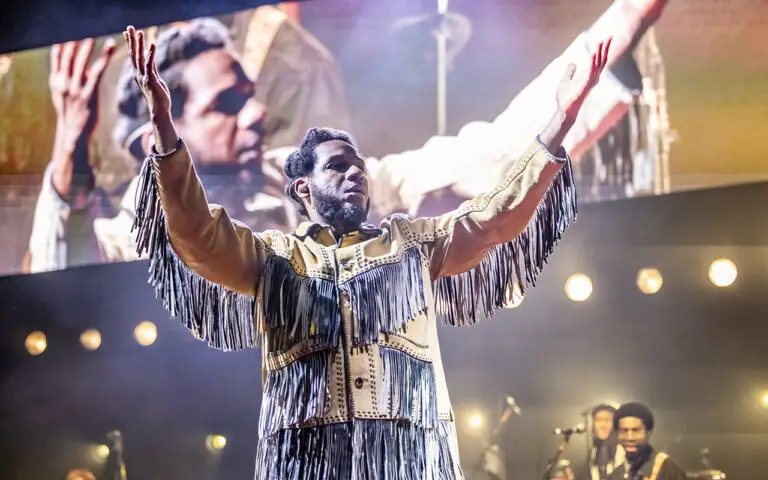
“Never Satisfied” yielded harmonies, some falsetto backup vocals and built to a more improvisational instrumental crescendo where electric guitar riffs came to a climax finish. The amalgam produced a much more urban feel than cowboy Crockett’s music, and overall, much less story-telling.
However, with “Mariella,” there Bridges went again, making a liar out of anybody trying to typecast him. He started the mellower number with ballad-like storytelling. The song is co-credited to Khruangbin, so maybe that’s part of the explanation.
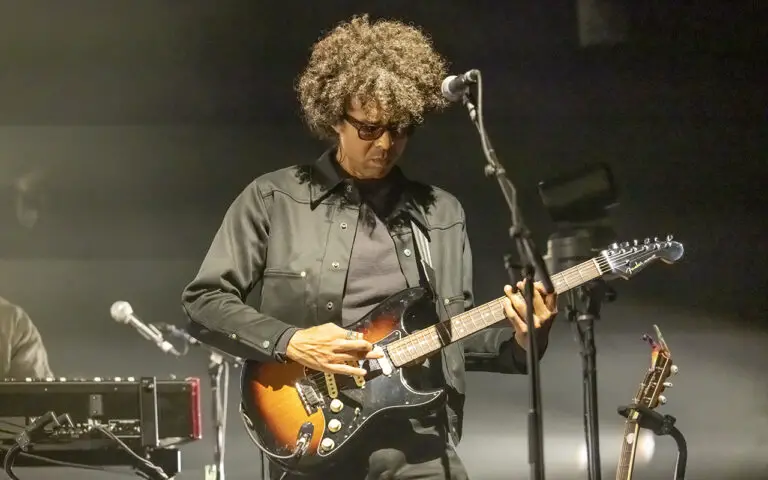
The vibe in “Shy,” midway through Bridges’ set, harked back to Smoky Robinson or Marvin Gaye for me as Bridges and the audience – myself included — swayed to its liquid tones.
“Texas Sun,” a second collaboration previously performed with Khruangbin, switched things up dramatically with a strong Western instrumental entrance which then sped up some with Bridges on acoustic guitar. As the number continued, I thought I identified some Latino rhythms.
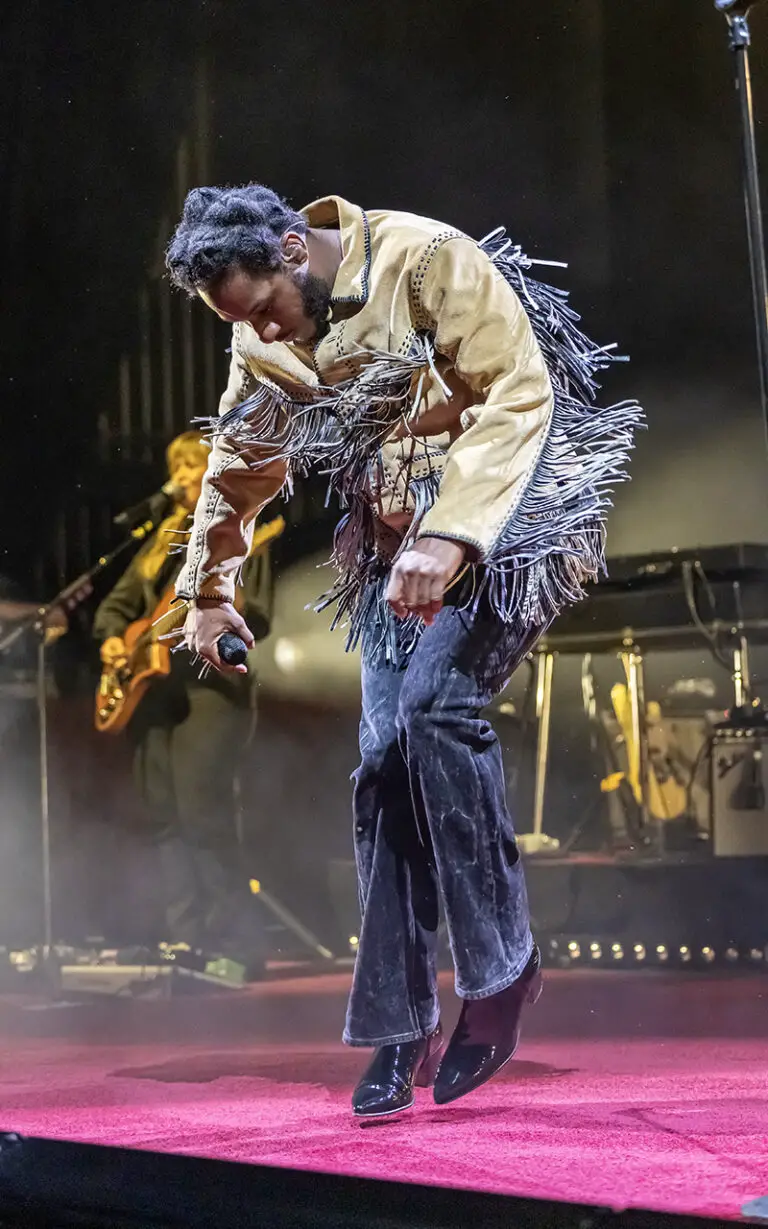
Perhaps the most eclectic mix (and one of my favorite numbers) came in “You Don’t Know” which began with an almost Michael Jackson-like back beat and threw in a little — would-you believe-Prince(?) — falsetto backup vocals before rhythms akin to those in Paul Simon’s “Graceland” seemed to creep in. The song ended with some growling electric guitar.
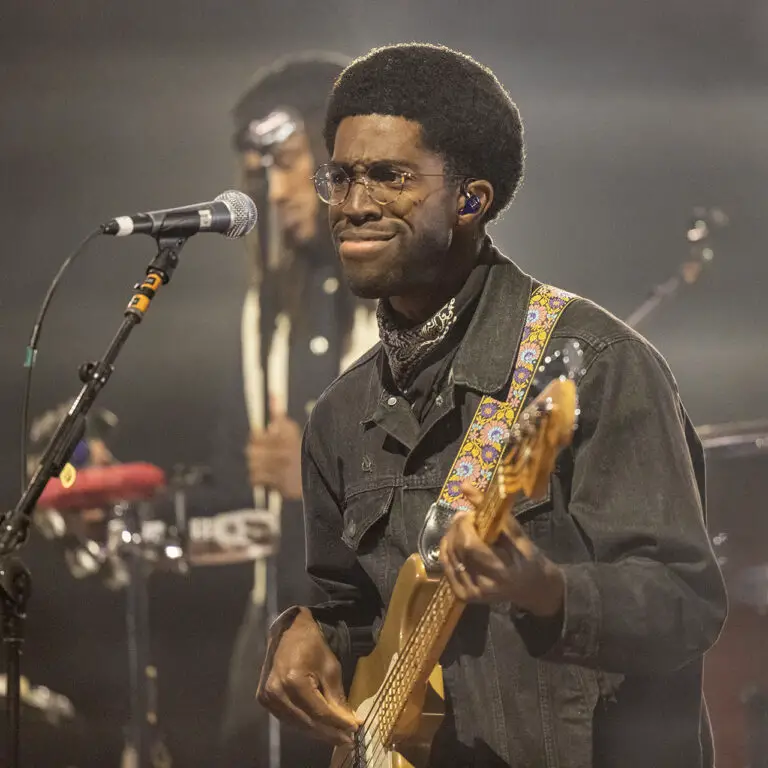
Am I full of sh–? Possibly, but it gets crazier: I could have sworn Rikki Lee Jones visited vocally for a minute during Bridges’ rendition of “Bad, Bad News” before instrumentation that reminded me of a train on tracks took over and then – could it be?! – background vocals and musical styling I associated with Earth, Wind and Fire made their presence known.
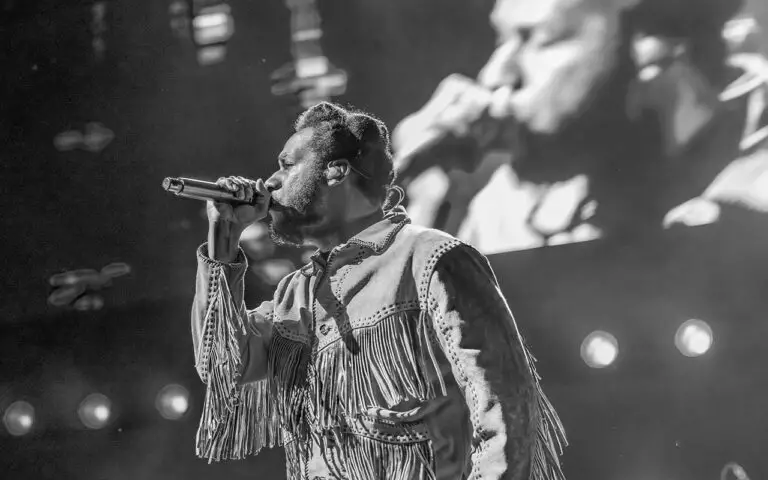
One of the most powerful numbers from my scorecard for the evening came with “River,” deep in Bridges’ setlist. Joined by two background vocalists center stage, Bridges came in on electric guitar after an almost church-like organ prelude. “Take me to the river…I will go” refrained in a gospel/spiritual style peppered with soulful harmonies, poignant pauses where the music stopped, and slide guitar nuances.
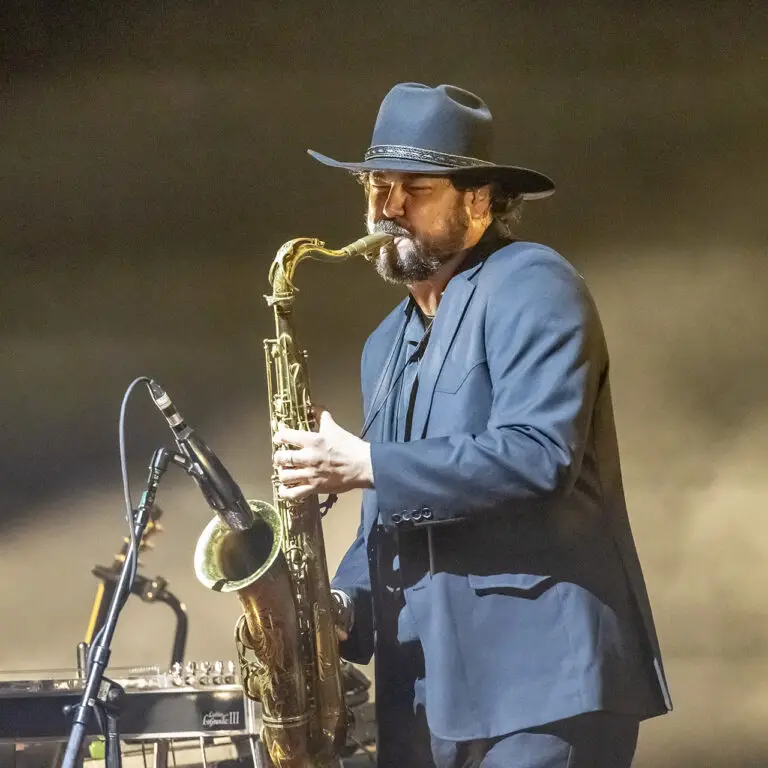
Bridges’ band closed with “Smooth Sailing,” an up-tempo number that included spoken lines, strong rhythms, squawks of saxophone and heavy drum and organ presence that reminded me of Huey Lewis & the News.
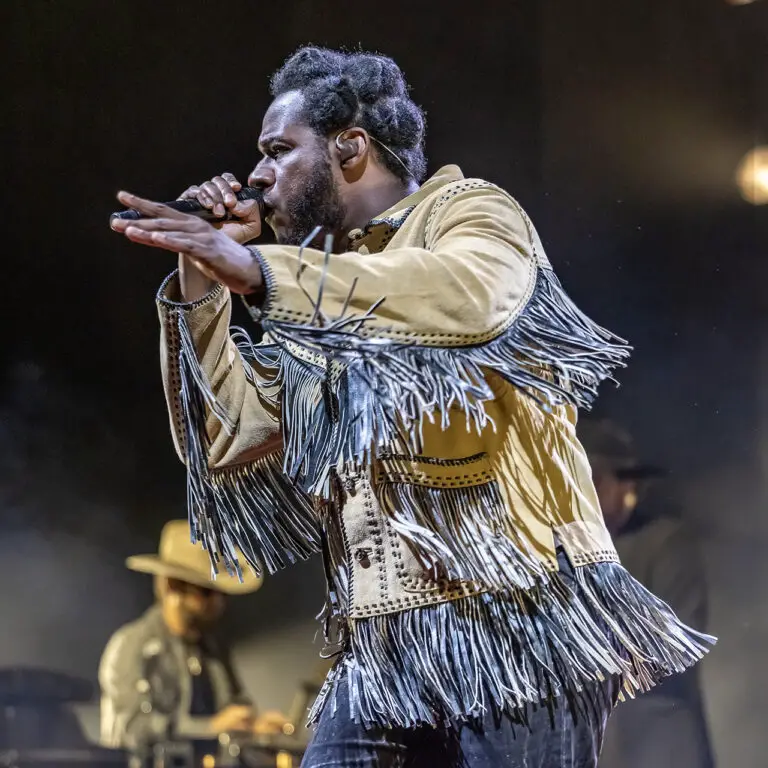
The audience was on its feet for much of the show, including the finale, and definitely when folks wanted to encourage an encore where flashing lights spelling “LEON” above the stage. During the encore, “Beyond,” Bridges held a mic up and the crowd helped sing “Ah-ah-ah…she just might be my everything and beyond.”
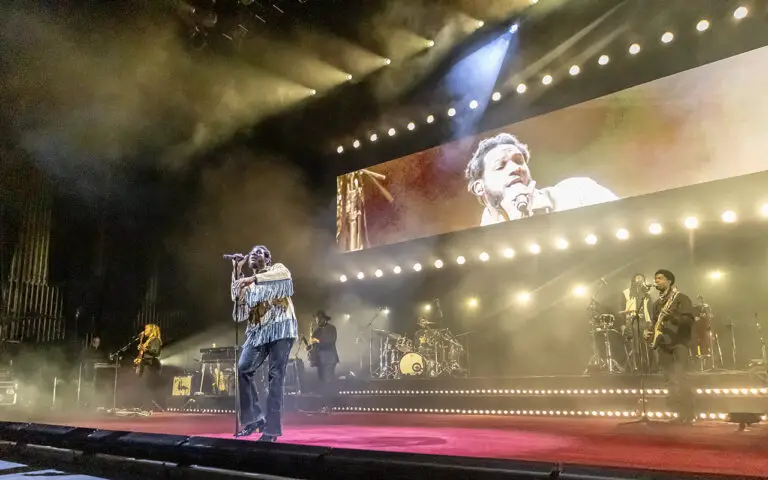
Crowd pleasers from Crockett’s stint (7:45 to 9:15), included the honkytonk “Tennessee Quick Cash,” the strong country rhythms and storytelling of “Night Rider,” the humorous and rowdy “Game I Can’t Win,” and “Welcome to Hard Times,” which started off slower with Crockett switching from electric to acoustic guitar and singing bittersweet lines like “Life’s a casino, I’m tellin’ you,” He gradually ramped up to a final, loud chorus of “Welcome to Hard Times!”
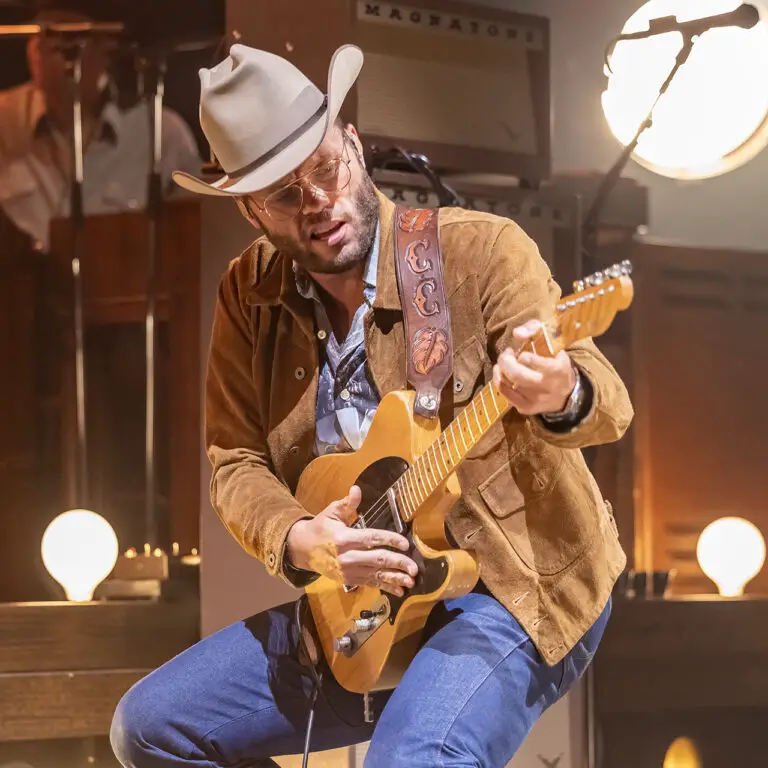
One of my personal favorite numbers was “Ain’t That Right?”, a spirited tale of misadventures on the road, which reminded me a little of Jimmy Buffett’s swingy, picaresque Caribbean yarn-songs, minus the steel drums and island graphics.
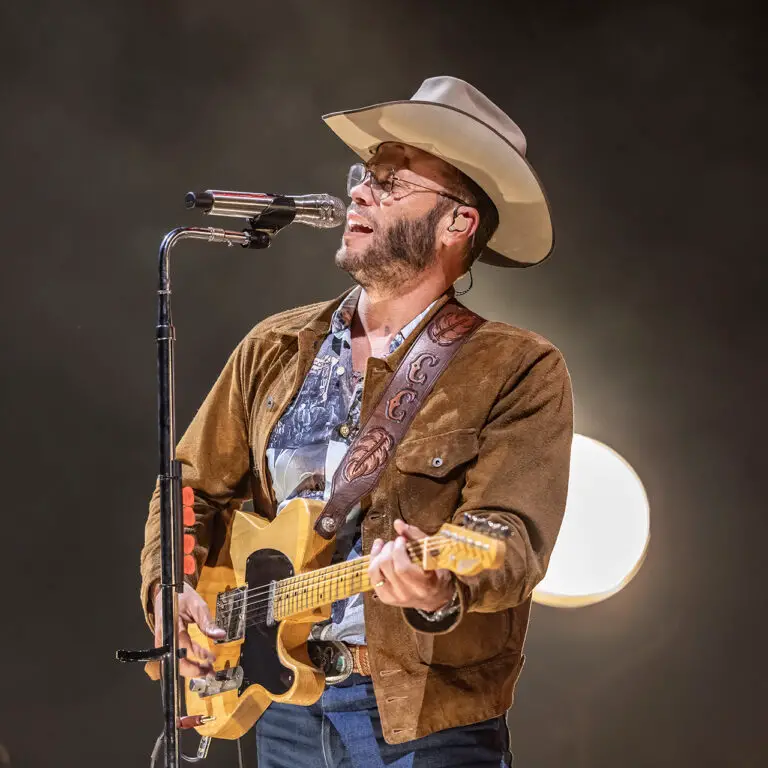
“Woman in a Bar,” which featured Crockett on acoustic guitar with no accompaniment at the beginning, provided more introspective reflection and storytelling that resonated softly, before the band launched into “Destroyed,” obliterating the quiet mood and showcasing Crockett’s dance moves and hamming center-stage. Lots of fun for the audience.
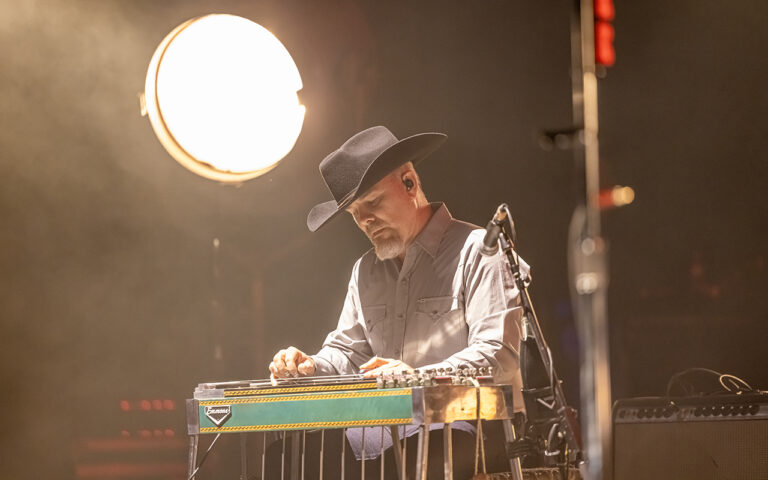
“Lonestar” followed with Crockett on a green electric guitar, then the jazzy “Trinity River” which included evocative lyrics, a terrific trumpet interlude and an impassioned end where Crockett crossed his arms and gripped his chest with a final chorus of “when everybody’s tellin’ lies!”
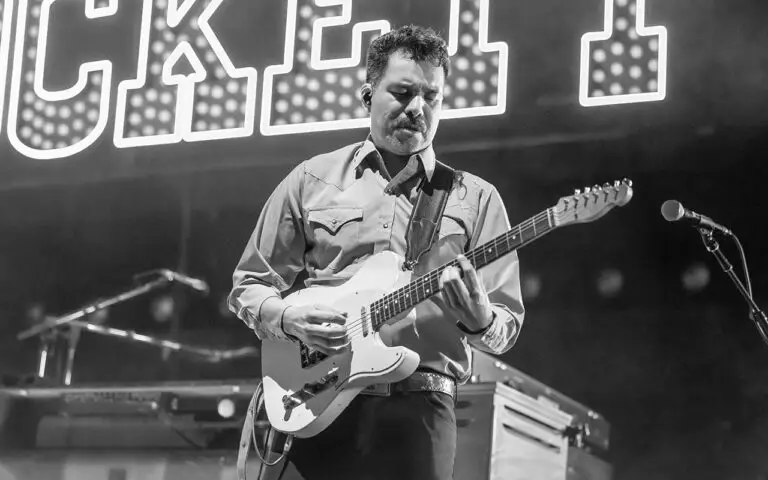
“Crucified Son” was equally passionate before Crockett thanked Willie Nelson, one of his “favorite influences,” and closed with “Lonesome Drifter,” what seemed like a hybrid of jazzy country rock with intense jamming and a big drum finish.
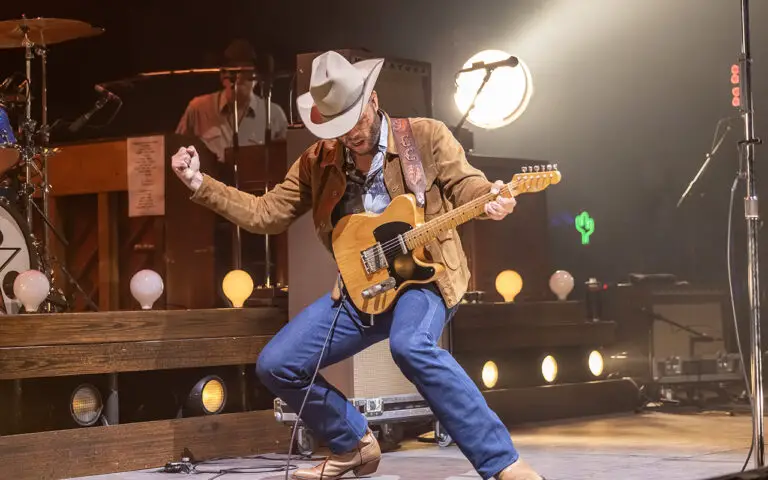
Credit should be given to Crockett’s talented six-man band who filled the space between numbers with delightful musical segues on electric guitar, trumpet, pedal steel, keyboards and drums to keep things moving while Crockett hydrated and changed instruments. It was sort of a bonus of mini-concerts inside the main concert.
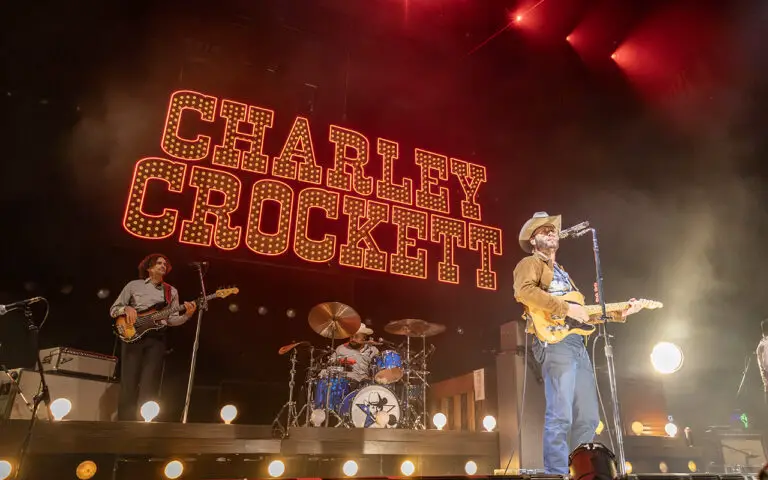
Noelline Hoffman and her two-man band provided the warm-up act preceding Crockett and also deserve a thumbs-up.
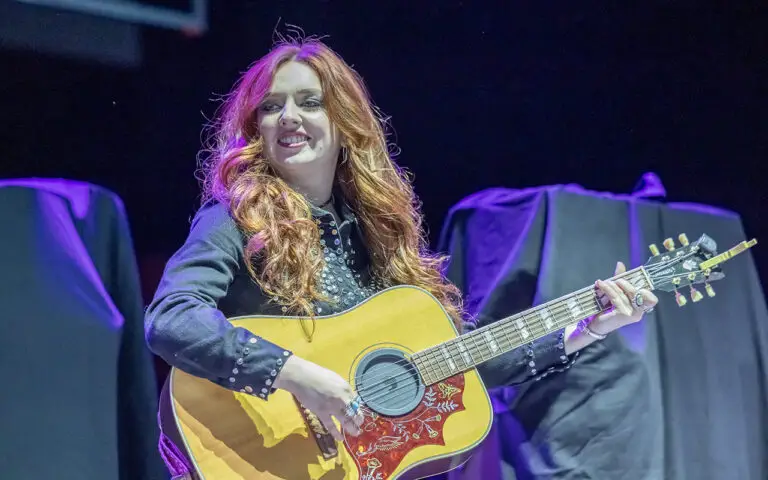
The red-headed Hoffman, who thanked Crockett for being “the first artist to ever take me on tour,” primarily played guitar and led vocals, accompanied by bandmates on backup vocals, electric guitar, mandolin and keyboards.
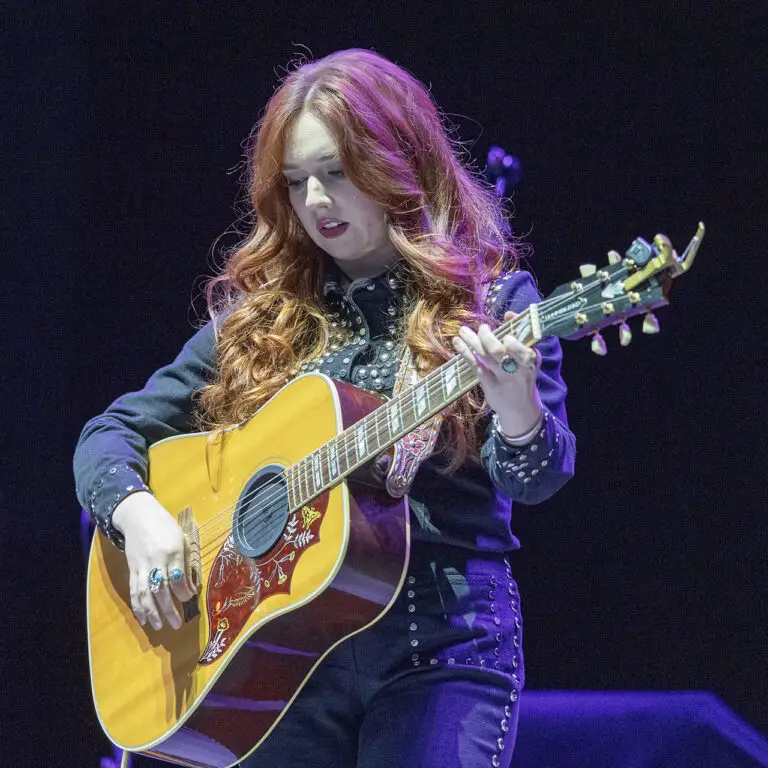
Hoffman’s strong, sweet drawling vocals, accomplished strumming and easy manner on stage point to her as a rising country talent with the support of the Lone-star cowboy, Crockett.
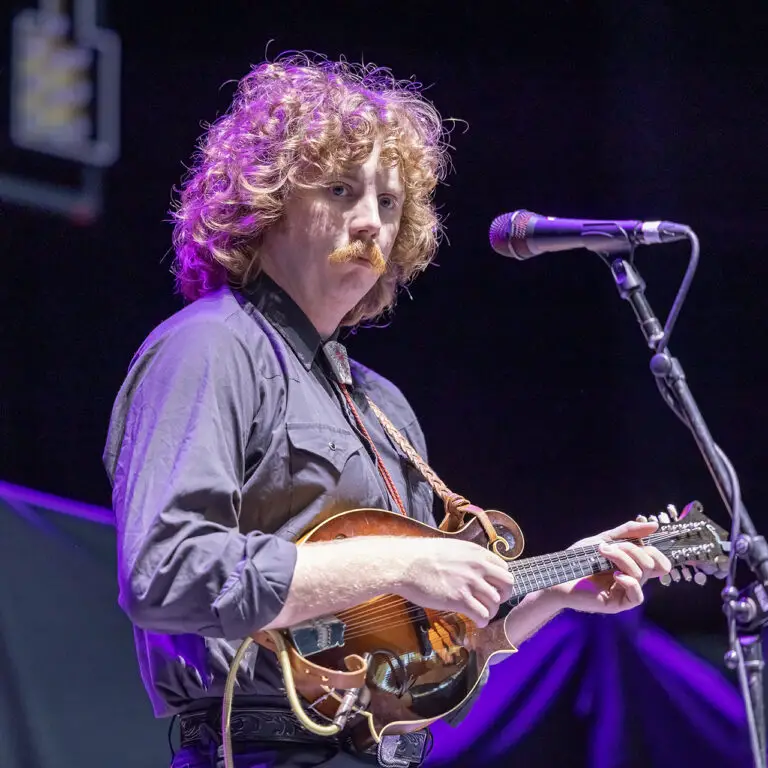
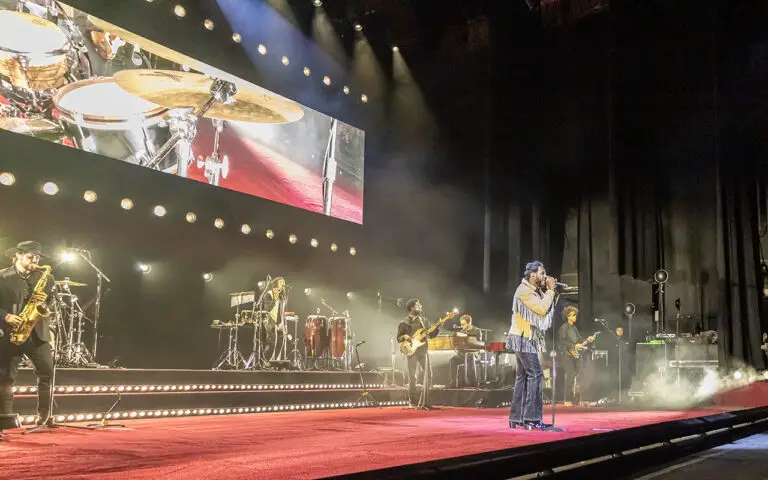
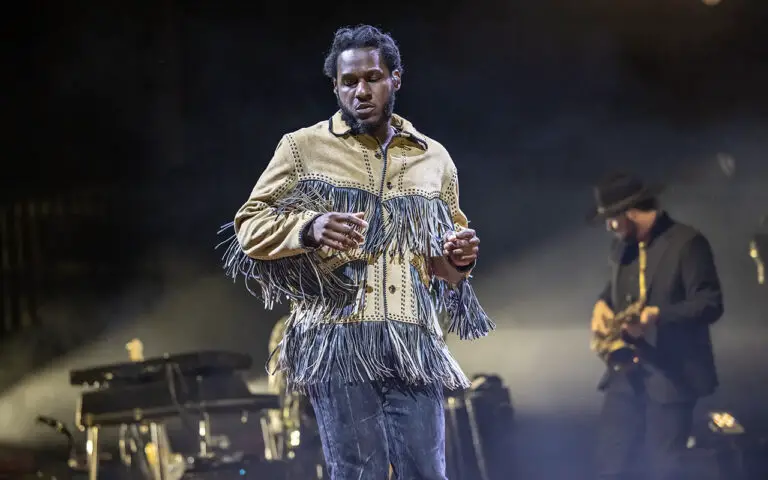

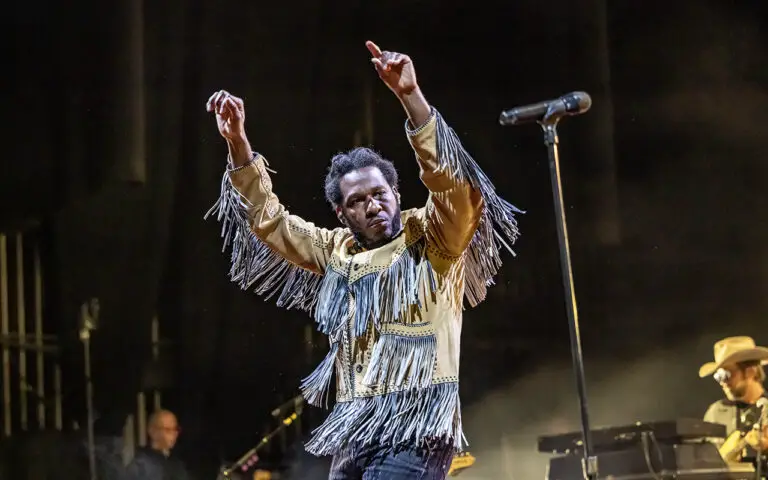
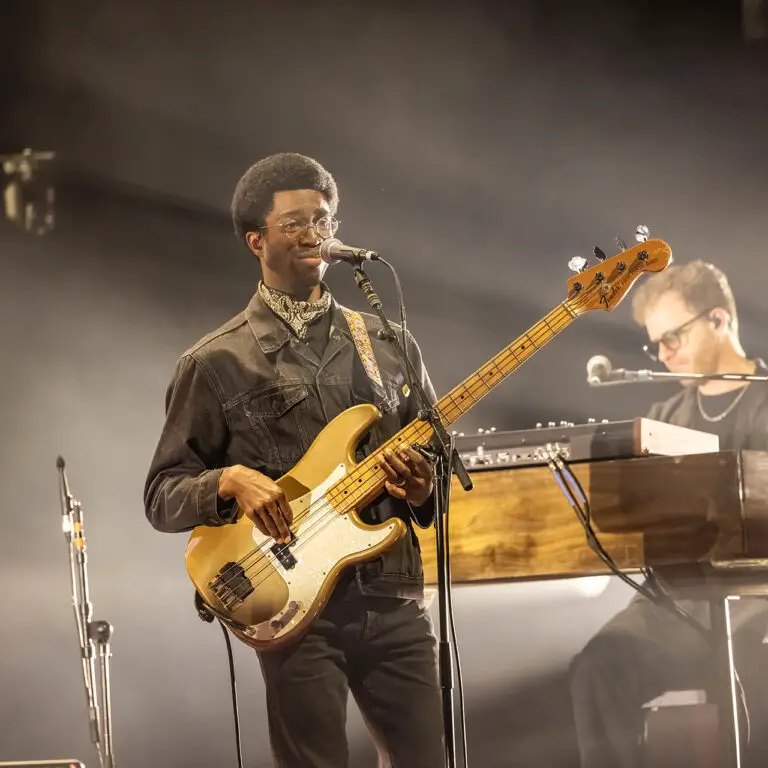

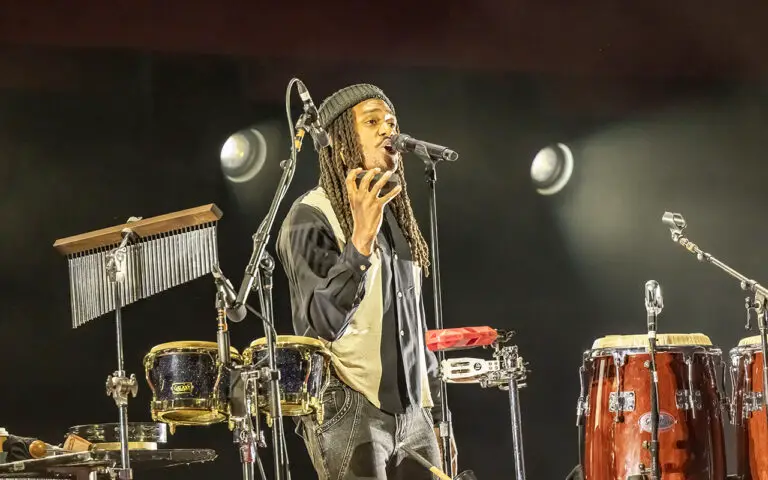
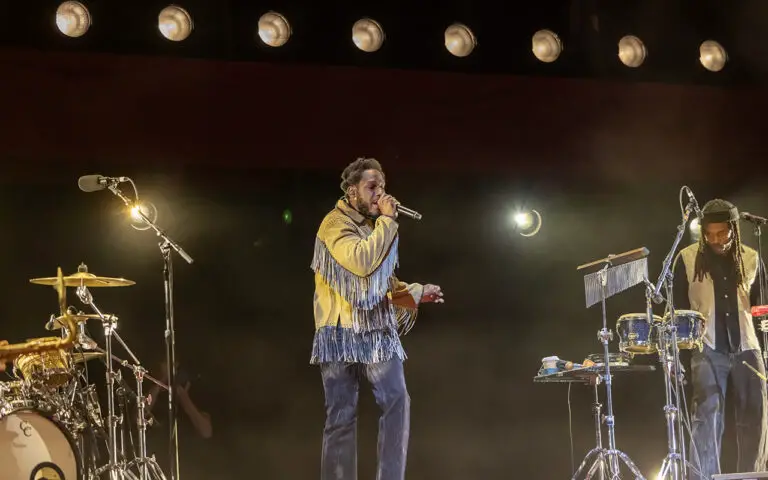
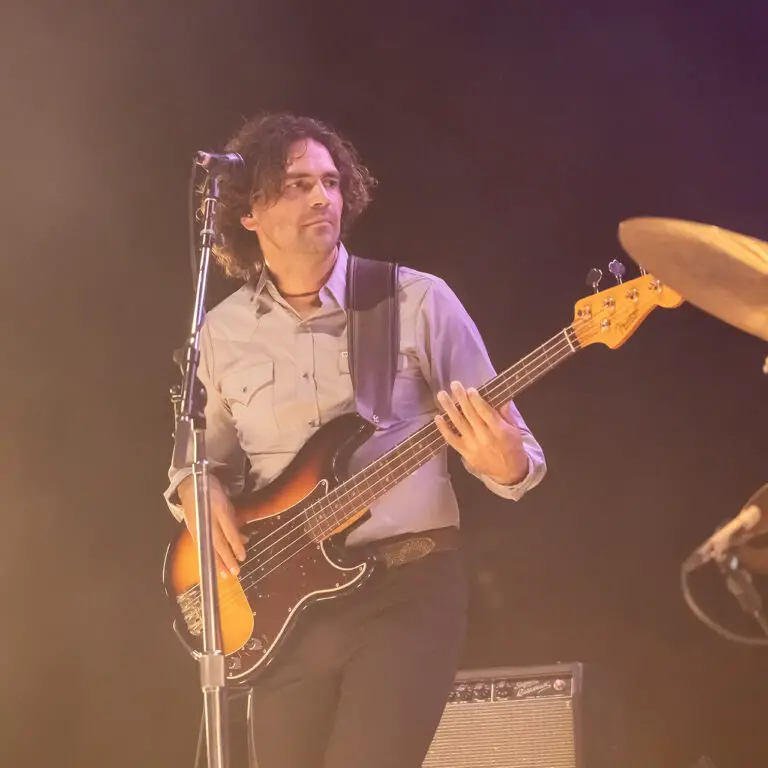
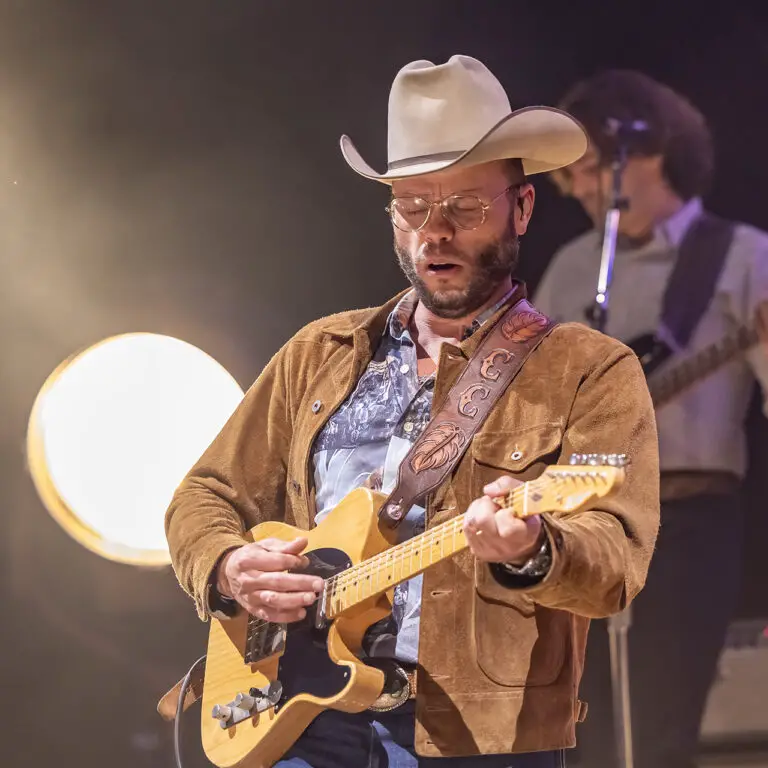


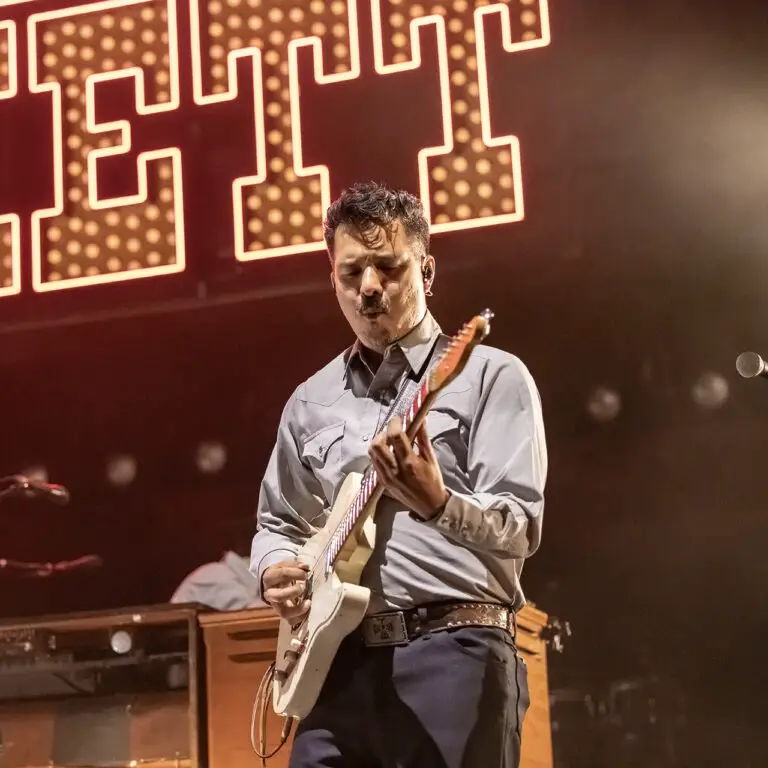
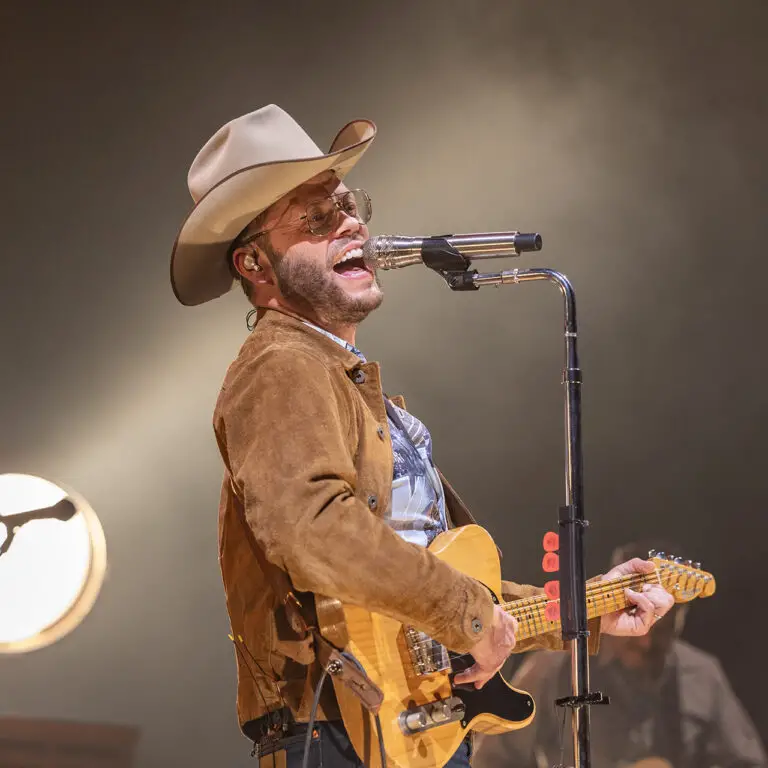
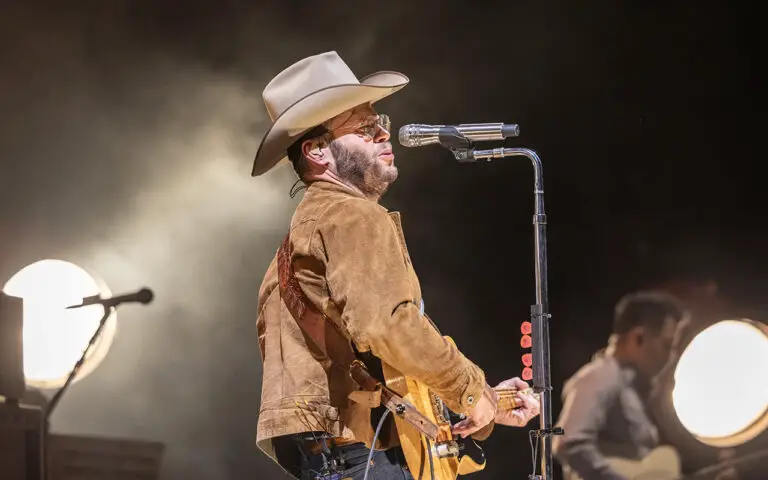
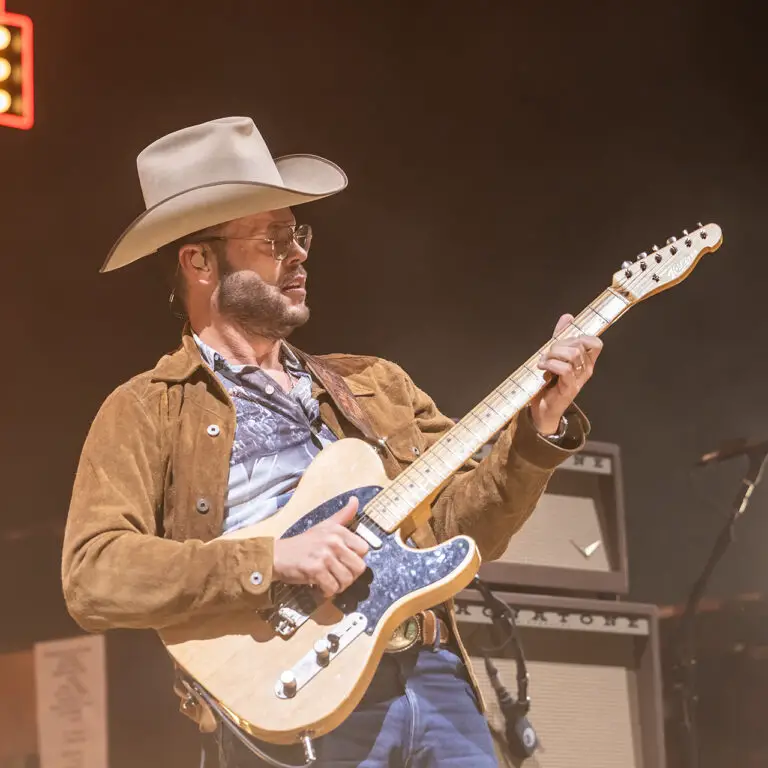
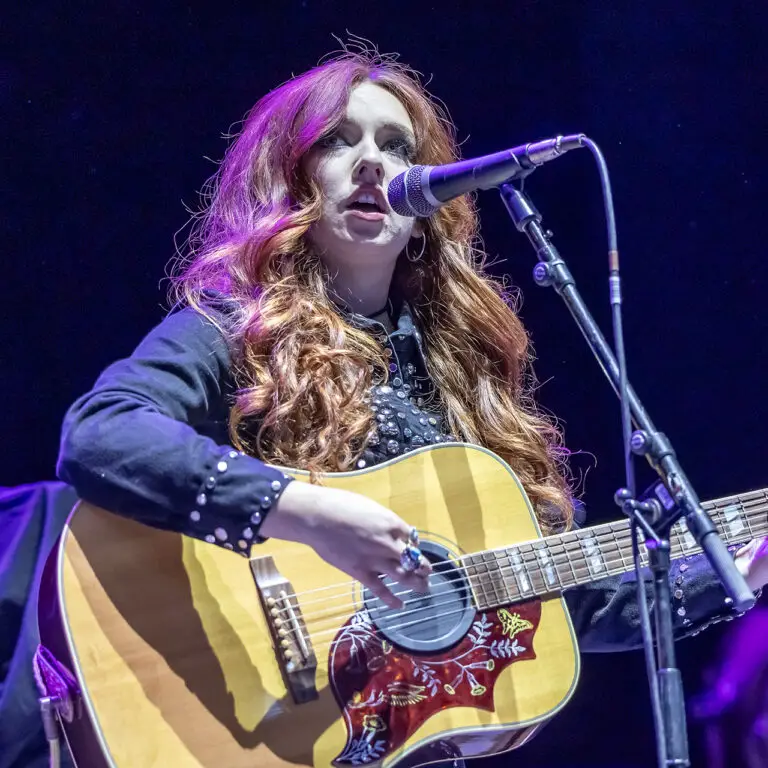
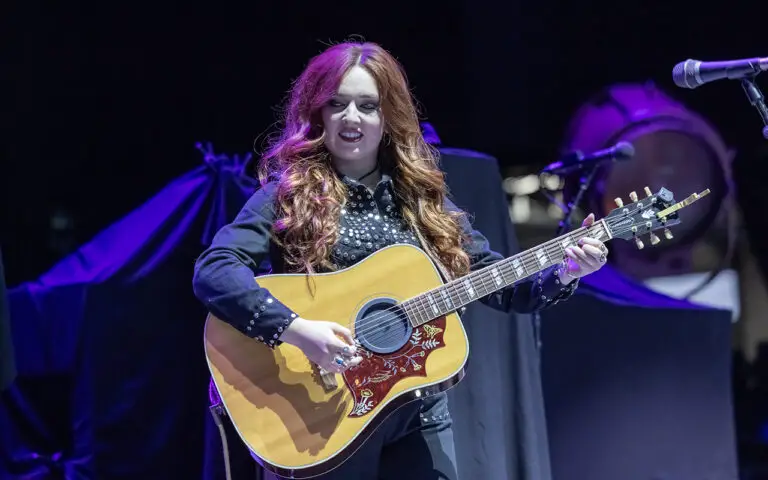



Comments are closed.